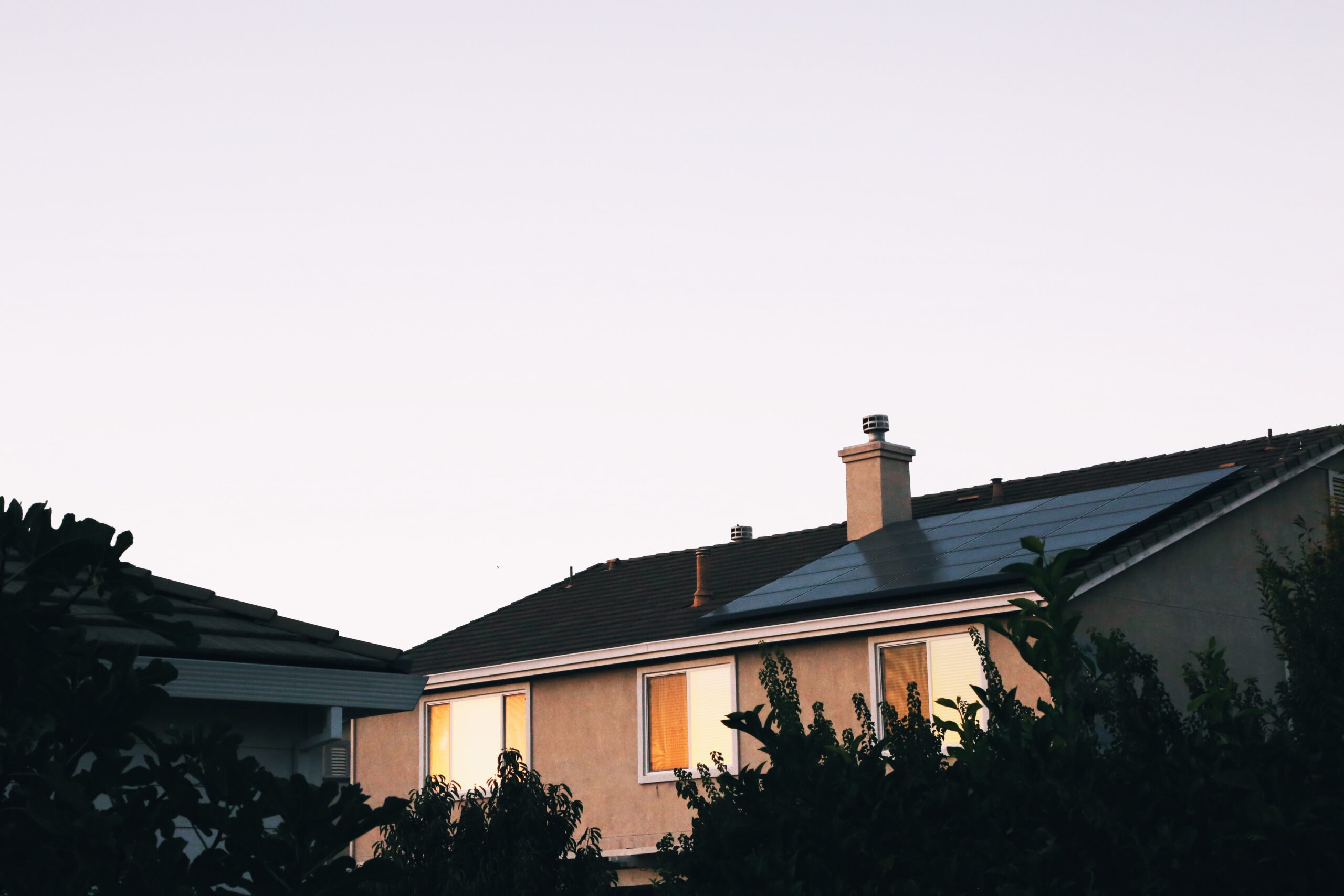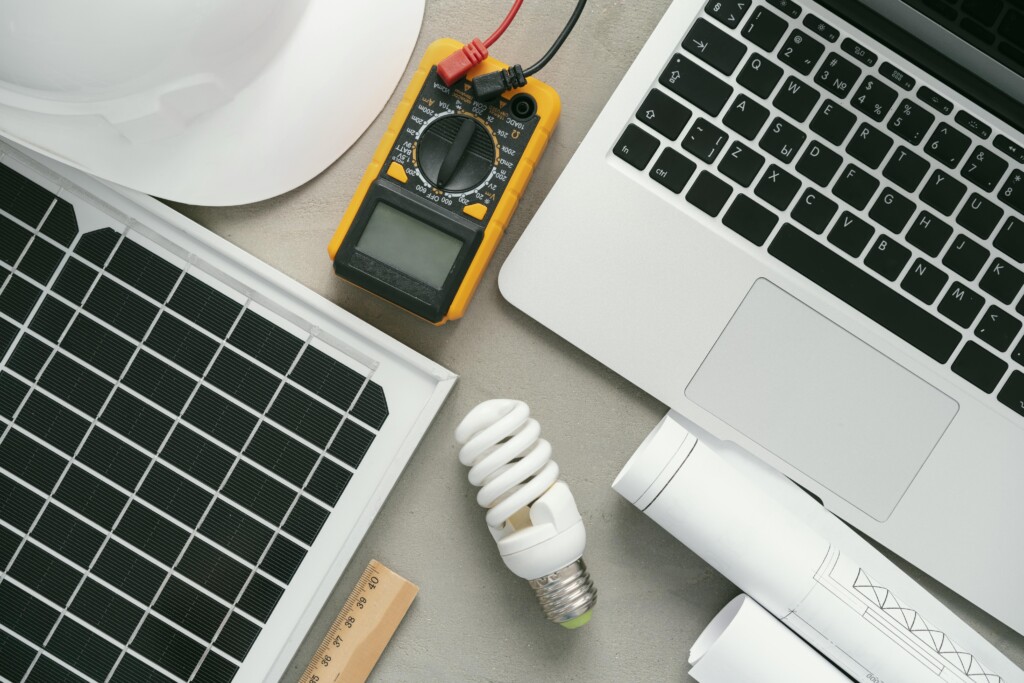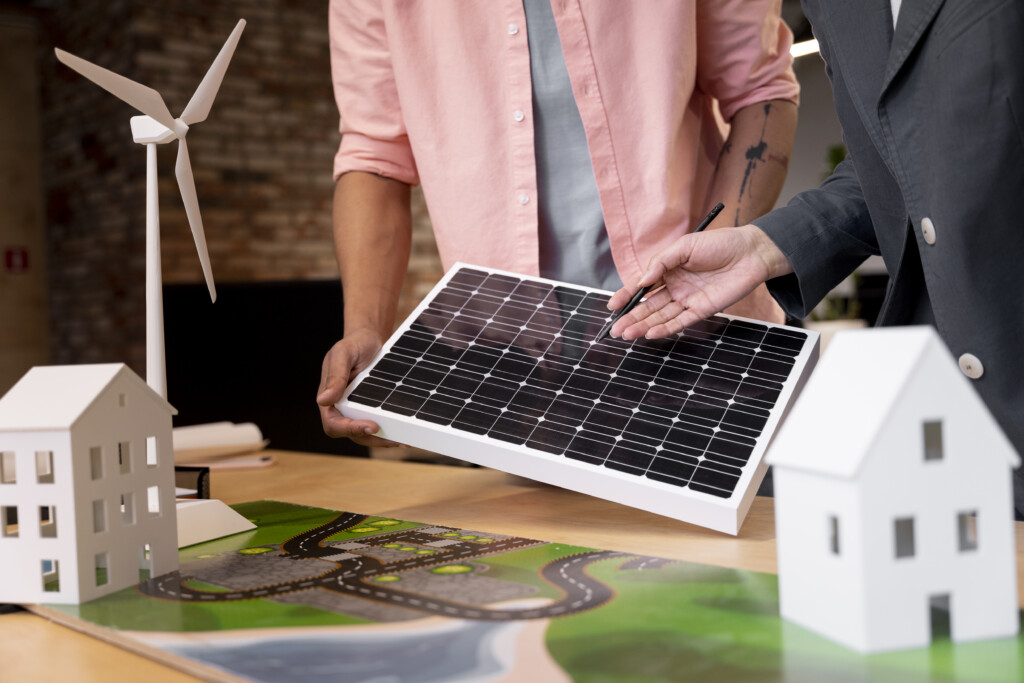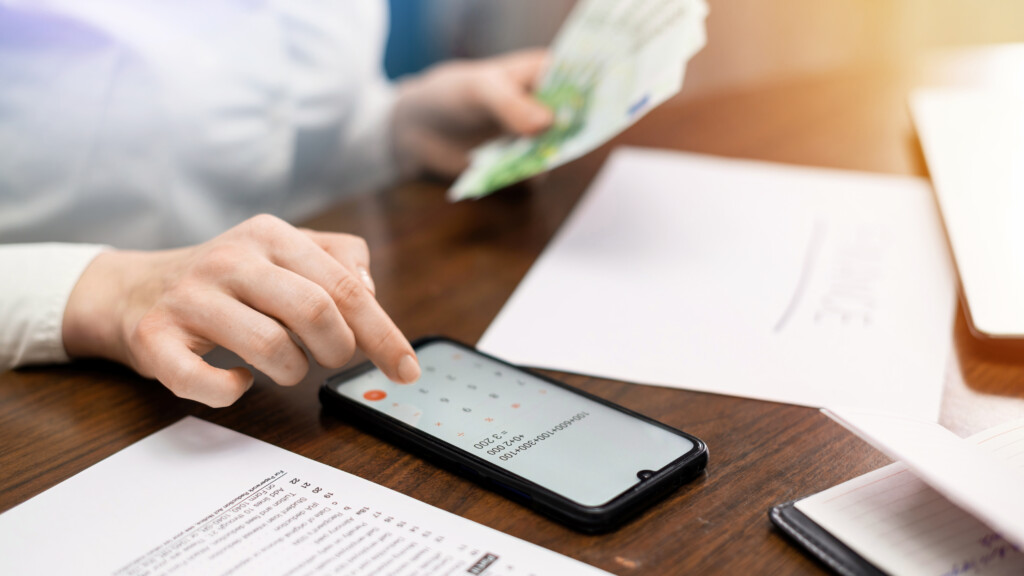Solar Energy, Solar Energy Basics, Solar Financing

As one of the most popular sustainable options for the production of renewable energy, solar systems are more and more common in homes and businesses worldwide. Despite their popularity, these systems are still considered a luxury for a lot of people. Considering this, many solar power companies offer a solar lease. This is a long-term contract made between customers and providers through which one can get solar panels without paying anything upfront.
A solar lease may be a smart choice if you want to reap the benefits of solar energy and reduce your utility bills but you don’t have the necessary capital to purchase the system. However, a solar lease isn’t entirely cost-free. So, what are the major pros and cons of solar leasing? Is it really cost-free or are there any hidden expenditures that will catch you by surprise? What does the contract made between you and the provider contain? Is there a better alternative to a solar lease? -Find the answers to these questions and other valuable information about solar leasing in the guide below!
A solar lease is a contract that’s made between you and the company with which you agree to rent their solar energy system at a specific fee. Thanks to this lease, homeowners can install solar panels on their roofs without any or only small upfront expenses. A solar lease is suitable for those who don’t have the funds to purchase the panels but want to get the advantages of a solar system. Once the company sets up the panels, you will be able to use the entire solar power generated by it. You won’t need power from the utility because your appliance will be powered by the energy that the panels make.
One of the first advantages you’ll notice is a lower electricity bill. What’s more, if the panels produce sufficient power to cover all of the energy use through net metering so this may even remove the bill for electricity entirely (fixed charges may remain).
Net metering is a practice during which the surplus production of energy is diverted back into the grid and the owner of the panels gets credits from the utility company. It’s available in almost all states in some form or another for all solar owners (except in Tennessee, Alabama, and South Dakota). For situations when the panels don’t create sufficient electricity for your home’s needs, you can make up for it by buying electricity from the grid, but at an added cost that’s extra to the solar lease fee. However, the lease isn’t entirely free. In fact, you will need to pay for the rent. This payment is usually a monthly installment agreed upon in the contract. But, this amount is usually lower than your utility bill prior to the solar. For example, if you paid $150 monthly for electricity and you have a solar lease of $100, you will save $50 every month.
It’s essential to know that the solar system may not always be able to generate sufficient electricity to cover your entire electricity bill. This is especially true in months with little or no sunny days or days when you use more electricity than you usually do. When this happens, you may end up needing extra grid electricity so you’ll end up paying for the electricity and for the solar lease.

Solar leases are made on the basis of a TPO financing model or Third-Party Ownership. When you sign this lease, you don’t own the solar system, but you agree to lease it from the solar company at a certain price. If you have a lease with a solar company, they will ensure optimal maintenance of the solar panels and ensure the panels’ performance is optimal. Those who consider a solar lease will be able to pick between various financing plans to suit their individual situation best. Some leases can be made so that you don’t have to pay anything whereas others can be made so that you pay for a portion of the solar system’s price and even buy the solar system before the lease term ends if you wish so.
Whichever option you decide to choose, you will have to pay a monthly rate for the right to use the solar system. When all aspects are taken into account, a solar lease comes with advantages and disadvantages. One example is that the liability and maintenance of the system are on the solar company because they’re the owners. However, since you’re not the owner, you don’t have the right to apply for solar energy tax credits and other incentives.
A solar lease agreement differs from company to company; however, the basics are usually the same. The length of the lease ranges between 20 and 25 years which is also the lifespan of most solar panels. If you wish, the solar company can provide a program for your computer or phone through which you can track your solar panel’s performance. You should also be aware that the company has access to the system and this is done to make sure it functions optimally. When something isn’t right with the performance of the panel, the repairs and costs are covered by the company.
Some lease contracts may include price escalators in accordance with the rise of electricity so the lease payment every month may increase yearly. In most cases, this escalator is between one percent and five percent. The contract may also include the ability to transfer the lease to new owners in case you’re moving away or to end the lease and take out the panels. Usually, once the lease ends, you will be given the option to renew it, remove the panels, or buy them at the current market price or at a price that has already been set out in the lease.

Before you decide to sign a solar lease, it’s essential to consider the major pros and cons so that you can make the best decision for yourself.
The Bills For Utility Will Decrease. Thanks to a solar lease, the solar panels will help you produce renewable energy that will power your home. As a result, your bills for electricity will drop.
You Get The Panels For Free. With a solar lease, you can avoid the numerous costs associated with buying and installing solar panels, though you will still have to pay a monthly lease fee. You can start benefitting from solar energy without worrying about the upfront budget.
No Need To Worry About Maintenance. One of the greatest advantages of renting solar panels is that you have zero responsibility for keeping the solar system running. With a lease, the company remains the sole owner of the solar panels and they’re in charge of maintenance as well as repairs.
You Know The Monthly Costs. With a solar lease agreement, the monthly payments and potential price escalators are clearly outlined. By knowing how much you need to pay for the lease and the percentage of the escalators, you can plan your monthly and yearly budget easier.

A solar lease may not be the most ideal solar solution for you due to some of the following disadvantages:
Not a Good Choice If You Plan To Sell Your Home. Not every solar lease contract is easy to transfer in case you want to sell your home. There are actually certain criteria that future homeowners need to fulfill if you decide to transfer the lease to them. One of the conditions is that they have a great credit score and are aware that the remaining monthly payments need to be made by them for the remaining years. Another option would be to prepay the lease and add it to the price of the home. Despite these options, not every potential home buyer is excited about solar panels: in some cases, this may back them off from buying the home in the first place.
The Monthly Payments Will Rise. A lease payment will be higher with each passing year. In fact, it’s very common for the annual payment to rise by 3.9 percent for a period of 15 years. With this in mind, if you usually pay for electricity around $110, a solar lease isn’t smart from a financial point of view. And, if your credit isn’t good, you’ll end up paying more than the advertised cost.
You’re Not The Owner Of The Panels. Since you only rent solar panels, you’re obliged to return them after the set period in the lease or buy them from the company once the contract ends. As you’re not the owner, you don’t fulfill the conditions and you can’t apply for any incentives or the federal tax credit. Only the company will have the right to these financial reliefs. In this case, a loan may be a smarter choice to consider instead. In this way, you can get the long-term advantages of a solar system. For example, owning the system boosts the value of your home and makes it more marketable. And, you could also apply for state financial incentives and tax credits.
You Won’t Save In The Long Run. A major disadvantage of a solar lease is that you will save a lower amount of money than you could if you bought the panels. If you take on a solar lease, you will usually be locked into the monthly payment for a period of 15 to 20 years, sometimes even 25. And, during this period, the amount paid for the lease may end up being more than the system’s actually worth. On the other hand, if you buy the system, you can remove the whole electric bill and there won’t be any monthly payments. You could also try a loan to buy the panels and once you pay them off, you will be the owner and thus, you will have free solar energy. This will reduce your electricity bill and there will be no monthly fee.
The Monthly Fee Doesn’t Stay The Same. A solar lease contains price escalators as a reflection of the rise in the cost of electricity on the market. But, you can never know for sure how much the increase will be until it actually occurs. Usually, most of the leases will have an escalator that varies between one percent and five percent. With this in mind, let’s say that your bill for a solar lease is $100 in the first year. It will go up by one percent in the second year. However, if the electricity doesn’t elevate that much in a certain year, you may pay more for the lease payment than you would have paid for the power from the utility.
Most Of The Benefits Of A Lease Are Already Available With A Purchase. Although the solar company is responsible for the maintenance of the panels if you lease them, the upkeep isn’t time-consuming or demanding: the panels usually need a rinse four times per year at most. This is something most solar panel owners can do on their own. Moreover, the warranty of the company from which you buy the panels and not lease them will cover most issues like with the wiring or inverter. And, any storm damage is usually may be covered by insurance.
A power-purchase agreement, also known as PPA, is very similar to a solar lease, but they’re not the same. Both of these contracts enable an installation of a solar system on a roof and with both of them, the owner is the company. You don’t own the panels in any way. In both cases, there’s a monthly fee involved. If you take on a solar lease, you will have a preset monthly fee that you need to pay no matter the amount of solar energy that the system has produced.
On the other hand, with a PPA, there’s a set price for every kWh of solar energy made. This means that the monthly cost with a PPA changes monthly and it’s conditioned by how much power the panels produce. In the case of a lease, the monthly fee doesn’t vary depending on the amount of solar energy that’s been produced. Instead, it tends to increase annually and the percentage is conditioned by a price escalator.

When considering possible options to get a solar system, it’s important to know that in addition to paying in cash for the system and owning it or taking on a solar lease and paying a monthly fee for one to two decades before you return or buy the system are only some of the choices. There’s a third possibility, i.e., to take on a home equity loan. It’s great if you need to be financed for buying the panels at a low-interest rate. This loan is also known as HELOC. One of the conditions for such loans is to have equity in your home. And, the amount you can lend with this loan depends on your income and credit score. If you’re approved for it, you will be able to buy the panels and then repay the HELOC back through monthly payments at a fixed interest rate. Since this is a secured loan option, the lender needs a collateral or an asset for the borrowed money. So, in case of missing payments, the lender will have possession of your property.
Being able to benefit from solar energy “for free” seems like an awesome deal and this is why solar leasing is increasingly popular. However, there are only a couple of cases when a solar lease is the best option for solar energy, i.e. if you don’t qualify for a solar loan or federal tax credit. Otherwise, when you have the needed funds for a purchase of a solar panel, buying is better from a financial point of view. Namely, the average price of a solar system installation is $18,000 and the time necessary to get a full return on it through savings in electricity is between seven and ten years.
To sum up, a solar lease requires a monthly fee which is subject to an increase of between one percent and five percent and lasts anywhere from 10 to 25 years. Also, if you go with a lease, you don’t have the right to apply for tax credits and incentives from the state. So, if saving money and having solar energy is your goal, owning the system is the best option. If a solar lease is more suitable for you, consult various solar companies in your area for quotes and professional opinions on whether the solar system is the right choice for your home or not.
Solar leasing is a financial agreement where a third-party company installs, maintains, and owns the solar system on your property. You pay a fixed monthly fee to lease the equipment and use the energy it produces.
With solar leasing, you don’t own the panels; you simply pay for the electricity they generate. Buying panels means you own the equipment and benefit directly from any incentives or rebates.
Solar leasing requires little to no upfront costs, provides predictable energy rates, and often includes maintenance and repairs as part of the agreement.
Leasing may limit your ability to claim tax incentives, can involve long-term contracts, and might not increase property value as much as owning solar panels would.
Stay a while and read more posts like this
In recent years, Europe has witnessed a remarkable surge in the adoption of solar panels, marking a pivotal shift towards renewable energy. Data from the...
Renewable Energy, Solar Energy, Solar Energy Basics, Solar Technology
“Unlock the Truth: Get the Facts on Solar Energy!” Introduction Solar energy is becoming increasingly popular as a renewable energy source, but there are...
Imagine a world where you’re able to cut your monthly energy expenditure substantially. A reality where your home isn’t reliant on finite,...